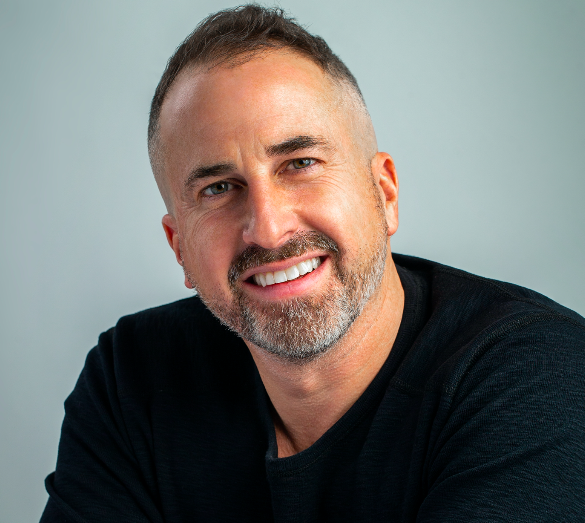Born just outside Toronto, Martin Short is the youngest of five children. When he was 12 years old his eldest brother died in a car accident. Six years later his mother died of cancer, and two years after that his father passed away from a stroke. Then after 30 years of marriage, his wife died of cancer at 58. Despite all this, Short remarkably demonstrates an unparalleled joie de vivre – he just keeps moving forward. His outlook on life is straightforward; “No one is any one thing.”
Born just outside Toronto, Martin Short is the youngest of five children. When he was 12 years old his eldest brother died in a car accident. Six years later his mother died of cancer, and two years after that his father passed away from a stroke. Then after 30 years of marriage, his wife died of cancer at 58. Despite all this, Short remarkably demonstrates an unparalleled joie de vivre – he just keeps moving forward. His outlook on life is straightforward; “No one is any one thing.”
Short could well be the funniest man alive. On visits to popular talk shows like Jimmy Fallon and Jimmy Kimmel he invariably has his host and the entire audience in stitches. He’s the comic’s comic with a brand of in-the-moment zaniness that doesn’t happen without a set of tools. And his toolbox is mighty big.
Short is leery to have a full menu of (near-guaranteed) laughs from which to draw upon. The comedic chameleon has a fluid ability to push the envelope of humour because he welcomes change and continually takes risks. Whether performing a duet with Steve Martin, embarrassing Drake, or playing a host of oddball characters – he always experiments and learns in real-time.

It is this same unbridled curiosity and continuous reinvention that helps the knowledge worker of today thrive. Appreciating that work is now a process and practice to be improved upon is a different mindset than previously championed in the workplace. Short teaches us that it’s O.K to test and play – because it makes us stronger, it makes us more human.
The new mode of work is a marked departure from the fixed ways of the past. Today, our world of work places more demand on our heads than our hands. It requires constant deliberation on how we can best exploit our most finite resource: cognitive power. Accordingly, the working style du jour is much more fluid.
Fluidity: the ability to move quickly and with dexterity amidst constant change.
That’s how I characterise fluidity. It’s like water’s amenable state; flowing in harmony with everything it encounters. Those that shine in the workplace move with similar ease. Cultivating fluidity means developing sufficient confidence to welcome change, continuously learning and improving, all the while expertly navigating a future that is only coming at us faster.

In many ways, fluidity is just a mental construct rooted in Darwinian logic. From a business point of view — failing to adapt to technological change results in almost certain death. Innovate or die! the familiar adage goes. Just think of Kodak, Blockbuster, or Toys R Us to help contextualise. And from a personal stance — learning to adapt to change with grace helps differentiate you from the crowd. You’re more courageous, speedy, and effective. Indeed, others are drawn to you precisely because they find your self-assurance and working-spirit intoxicating.
The need for fluid ways of working is evidenced most by the divergence from specialised workforces and the convergence of industries. The telecommunications, information technology, media and entertainment industries (otherwise known as TIME) are now enmeshed. There is no company, in any industry, which will remain unaffected by the convergence of sectors amplified through digital innovation. The upshot is that companies need to rethink how they will create value. The complexity of operating in this volatile economy makes it one of the biggest challenges to a company’s future. This is what keeps CEO’s up at night.
Taking a diverse and nimble approach to work like Short is one way to deal with complexity in our advanced economy. “If our economy is to be innovative, creative and diverse in thought, then so too must our education, our workforce and our jobs. If we are to have breakthrough technologies, we need to create breakthrough thinkers with the capacity to understand a variety of fields,” writes researcher Joshua Krook. Having a solid skillset is a good start but it’s really the ability to learn new skills on the go that differentiates one from the herd. The capacity to swiftly master different disciplines, a mark of expert generalists, is a herald of tomorrow’s organisations.
The most progressive companies mimic our most innovative technologies. They have a robust operating system (OS) and a bunch of Apps living on top that are added, removed, and easily reconfigured on demand. The delicate dance is between the fixed ways of the past and the fluid practices fit for the future. Companies like IDEO and the Economist already have 30% of their workforces comprised of independent workers. And when the average tenure of an employee at Google is just one year, it helps explain why they have more contractors than full-time employees.

As we shimmy and shuffle to constantly find meaning and challenge in the work we do – frequent and intensified existential angst will emerge. “While the production line worker lived in a world of small units in which each movement and each unit of time repeated itself until clocking off time – or even until retirement time – the world of the flexible worker is dynamic and malleable…our lives tend to break down into individual episodes. Whether these can all be stitched together into a coherent story is up to us. Or if we fail, it’s up to our therapists, who we give the task of moulding wholesome unity out of the fragments,” writes sociologist Sebastian Pranz.
Looser organisational structures permit these companies to draw from a variety of talent and expertise outside of the office. The onus falls on independent workers to protect their freedom and not play victim to precarious working conditions. The real shift in work then is first and foremost a psychological one. We’re resetting – exercising our minds to develop and adopt a new system of work.

In any given set of circumstances, we can take a cue from Martin Short and choose to adopt whatever attitude we want. It’s this mental model underpinned by fluidity and fulfilment which makes for a rich inner life and a healthy view of work.


